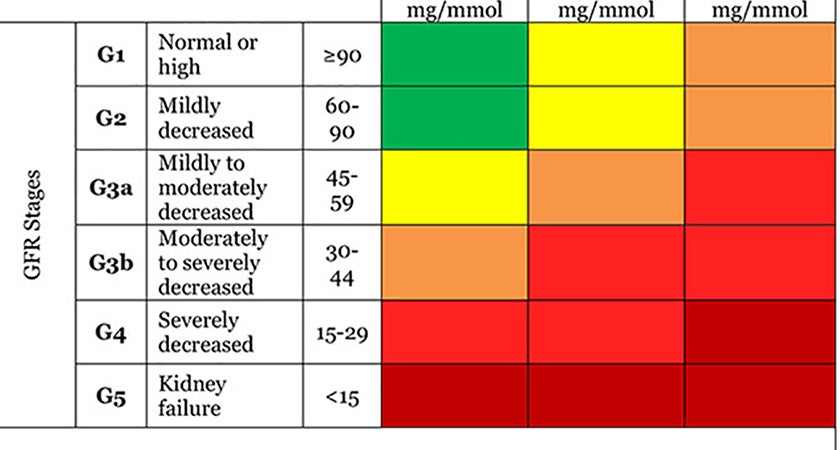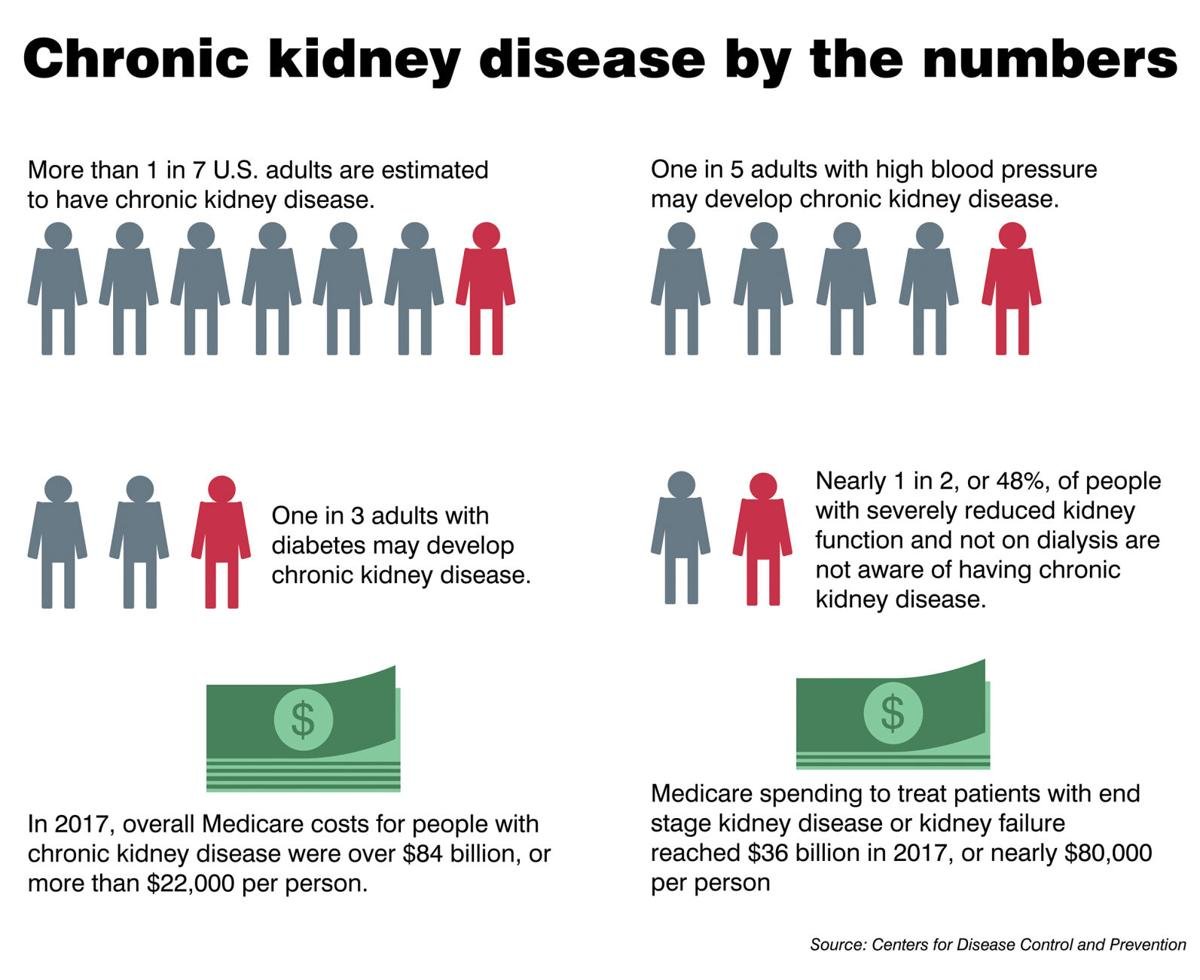Chronic kidney disease also called chronic kidney failure describes the gradual loss of kidney function. Doctors have staged the progression of chronic kidney disease CKD from stage 1 to stage 5 in the increasing order of its severity.
 Estimated Glomerular Filtration Rate Egfr National Kidney Foundation
Estimated Glomerular Filtration Rate Egfr National Kidney Foundation
Stage 1 of Chronic Kidney Disease.

Stage one chronic kidney disease. Usually people who have stage 1 - 3 CKD meaning mild to moderate levels dont feel any kind of uneasiness. Chronic kidney disease CKD refers to all five stages of kidney damage from very mild damage in stage 1 to complete kidney failure in stage 5. Chronic kidney disease CKD happens when 85-90 of your kidney gets damaged and becomes functionally impaired.
It is difficult for a physician to find out about the presence of kidney damage due to the absence of symptoms that appear early in the state. Some patients may be told to limit protein in their diet as well. Initially there are generally no symptoms.
Later symptoms may include leg swelling feeling tired vomiting loss of appetite and confusion. Make healthy lifestyle choicesquit smoking exercise eat well reduce stress and get enough sleep. Stage 1 kidney disease In stage 1 theres very mild damage to the kidneys.
Chronic kidney disease CKD refers to permanent damage to the kidneys that occurs gradually over time. At stage 1 kidney disease see your primary care physician PCP regularly to monitor your health. When chronic kidney disease reaches an advanced stage dangerous levels of fluid electrolytes and wastes can build up in your body.
Often though chronic kidney disease has no cure. Stage 1- Controlling heart disease blood pressure and blood sugar level will help you control CKD in stage 1. Nutrition and Chronic Kidney Disease Nutrition for Children with Chronic Kidney Disease Most patients in the early stages of kidney disease need to limit the amount of sodium in their diet.
In the early stages of kidney disease there are no symptoms which is why its important to get your kidneys checked regularly. Most people in the early stages of kidney disease do not need to limit the amount of fluids they drink. Kidney disease symptoms usually emerge at advanced levels of CKD such as that with stage 4 and above.
Stage 1 chronic kidney disease has a glomerular filtration rate GFR in excess than reasonable value. Chronic kidney disease CKD is a type of kidney disease in which there is gradual loss of kidney function over a period of months to years. Your GFR will be 90 or above with in this stage with fewer.
Your doctor will likely take blood and urine samples at least once a. When a person has the GFR value of 90 mlmin falls under Stage 1 chronic kidney disease. If you have stage 1 kidney disease your blood will likely show.
If your kidneys become severely damaged you may need treatment for end-stage kidney disease. CKD is classified into five. There are 5 stages in chronic kidney diseases stage 1 means the mild or beginning stage of kidney damage and stage 5 was the final stage which will end up in kidney failure.
When your kidneys dont work well for longer than 3 months doctors call it chronic kidney diseaseYou may not have any symptoms in the early stages but. Treating Kidney Disease Based on Stages. Ask for your current eGFR and monitor your rate regularly.
Further progression may be preventable depending on its stage. There are usually no symptoms to indicate the kidneys are damaged. Be sure to talk with your healthcare.
Start eating right With fruits vegetables legumes whole grains low- and nonfat dairy lean proteins and low-sodium foods this kidney diet is very similar to the recommendations in the Dietary Guidelines for Americans as well as the DASH eating plan Dietary Approaches to Stop Hypertension. Chronic kidney disease causes. Your kidneys filter wastes and excess fluids from your blood which are then excreted in your urine.
A person with stage 1 chronic kidney disease CKD has kidney damage with a glomerular filtration rate GFR at a normal or high level greater than 90 mlmin. Higher than normal levels of urea an end product of protein metabolism usually excreted in the urine. Complications include an increased risk of heart disease high blood pressure bone disease and anemia.
Higher than normal levels of creatinine a waste product of muscle metabolism. However you can also try certain ways to treat your kidney disease based on different stages. Learn all you can about chronic kidney diseaseand consider taking a class.
If your kidney disease gets worse your dietitian or healthcare provider can let you know if you need to limit fluids and how much to drink each day. With information about different stages of kidney disease you can definitely take steps to slow the progression rate of your kidney disease. Higher than normal levels of proteins especially albumin.
The stages of kidney disease are based on how well the kidneys can filter waste and extra fluid out of the blood. Treatment usually consists of measures to help control signs and symptoms reduce complications and slow progression of the disease. These stages are based on your glomerular filtration rate GFR.
Theyre quite adaptable and can adjust for this allowing them to keep performing at 90 percent or better. If you do not know your stage of kidney disease ask your healthcare provider. Now this is where it gets tricky.
Stage 1 and 2 kidney disease. The DASH diet is often recommended for patients with kidney disease.